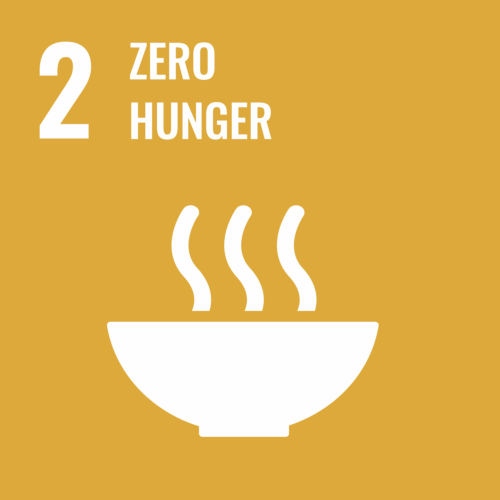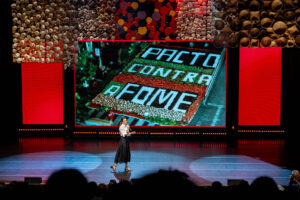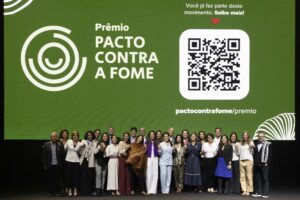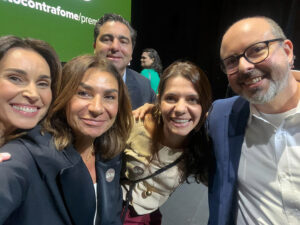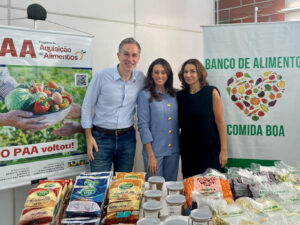Our commitment
Every company is part of a bigger system – At Integration we are committed to operate in ways that are socially responsible and environmentally sustainable.
We act in accordance with the United Nation’s Ten Principles of Corporate Social Responsibility and apply these to everything we do.
Our approach
Beyond our core business activities, Integration is committed to supporting social initiatives and start-ups.
The focus for our Corporate Social Responsibility actions in derives from the 17 Sustainable Development Goals (SDGs) promoted by the United Nations. Of these, we have selected three to actively pursue, in the belief that they are the ones on which our business practices and culture can make the largest impact:
Our engagement
Integration supports a range of NGOs, start-ups and organizations in the spirit of corporate social responsibility. We believe in collaboration and joint efforts as a prerequisite to impact and expand topics beyond our day-to-day activity.
Our engagement is a targeted effort through which we support the education, entrepreneurship and social work sectors (SDG 4,8 & 9). This is divided into two types:
Pro-bono work: Services we offer to nonprofit organizations or social enterprises for free or at a significantly reduced cost. The aim is to help solve a business problem or achieve a strategic objective that the organization or enterprise may need more resources or expertise to address.
Strategic partnerships: Long-term collaboration with selected institutions that align with our values and SDG goals. More than just project-based support, these partnerships involve continuous engagement, with our professionals dedicating time and expertise to drive meaningful impact. These partnerships reflect our commitment to creating lasting, positive change beyond individual initiatives

SOCIAL IMPACT
PACTO CONTRA A FOME
42 SP
What is the Pacto?
Brazil faces a paradox: Despite being one of the world’s largest agricultural producers, more than 64 million Brazilians have limited access to food while the country throws away 55 million tons of food every year.
Conceived during the pandemic and officially established in 2023, Pacto Contra a Fome (Pact Against Hunger) is a nonpartisan, cross-sector coalition created in response to this challenge. It brings together civil society, government, the private and third-sector institutions to drive structural, long-term solutions for eradicating hunger by 2030 and reducing food waste across Brazil.
How does the Pacto act?
The Pacto operates as a strategic platform that mobilizes knowledge, data and incentives to unlock solutions and generate impact at scale.
Its role is to create synergies among key stakeholders, promote best practices aligned with the Sustainable Development Goals and strengthen existing initiatives focused on socioeconomic inclusion and sustainable access to food. The Pacto helps local and structural solutions gain visibility, scale and impact in the fight against hunger and food waste.
Rather than implementing solutions directly, the Pacto acts as a catalyst for ecosystems and a strategic partner for social transformation. It connects communities, civil society organizations, government agencies, businesses and academia to strengthen and accelerate high-impact initiatives – with the mission of engaging society, supporting public policy, driving action and creating conditions for supported organizations to expand their reach
Integration involvement
As a partner since the inception of the initiatve, Integration has supported the Pacto in strengthening its ability to drive structural and lasting impact. Our involvement has helped turn diagnostics into concrete actions, scale up initiatives and define strategic paths to enable systemic solutions.
This collaboration has contributed to:
- Generating data and insights that informed the Pacto’s public positioning and supported related public policies
- Translating collective ambitions into concrete strategic plans, with clear goals, priorities and guidelines
- Structuring governance models and coordination between civil society, the private sector and government
- Mapping key stakeholders across food supply chain (cooperatives, associations and strategic products) to help define engagement priorities and guide action
- Systematizing legislation and best practices, both national and international, to support the Pacto’s public policy and legislative agenda on food loss and waste
- Developing scalable models for systemic initiatives, focused on efficient management, replicability and long-term sustainability
- Strengthening the Pacto’s own capacity to act as a catalyst – bringing strategic direction, structure and intelligence to help turn intent into lasting results
Our contribution
Since 2021, Integration has been proud to serve as a cofounder of Pacto Contra a Fome, contributing strategically to strengthen its role as a catalyst for systemic solutions aimed at eradicating hunger and reducing food waste in Brazil.
Integration has supported the Pacto at several key moments in its trajectory, with a focus on four complementary fronts:
- “Hunger & Abundance” study (2021): A national diagnosis of hunger and food waste, mapping affected populations, losses across the food chain and the existing ecosystem of responses.
- Structuring Pacto (2022): Support for initial strategic planning and definition of the initiative’s core pillars, in collaboration with a founding group of 40 leaders from diverse sectors.
- Strategic planning review (2024): An update of Pacto’s aims and priorities based on experience gained in its early stages, defining the roadmap for its consolidation and expansion over the coming years.
- CEASAs Project (2024): Strategic design of an initiative to strengthen sustainable models in Brazil’s wholesale food supply centers (CEASAs), such as the Zero Waste initiative in Curitiba. This included defining the scope, goals and timelines, with a focus on creating a practical, nationally replicable methodology.
What is the 42 SP?
42 is a global, tuition-free software engineering school that provides world-class training through an innovative, peer-to-peer learning model. Founded in France in 2013 by tech entrepreneur Xavier Niel, 42 aims to democratize access to digital careers and has become an international benchmark in software and data engineering education.
Designed to be radically inclusive, 42 welcomes students from all backgrounds – with no formal educational prerequisites, financial cost or age restrictions. Its mission goes beyond bridging the global gap in tech talent. By unlocking opportunity based on ability and motivation rather than diploma or income, 42 combines excellence and equity to build a more inclusive digital economy.
How does the 42 act?
42 challenges traditional models of education by focusing entirely on talent, logic and motivation. Admission is based on a unique selection process that assesses problem-solving ability and behavioral profile, rather than academic transcripts. Those who are accepted embark on a rigorous, self-paced program in software or data engineering, centered on peer collaboration and project-based learning.
The school is entirely funded by donations from corporate partners, creating a mutually beneficial cycle: companies support free education and, in return, gain early access to a pipeline of highly skilled, diverse talent. This model makes 42 both financially sustainable and socially impactful, enabling the scale-up of digital skills training in underserved communities – including in fast-growing tech markets like Brazil.
Integration involvement
In partnership with 42, Integration led a pro bono strategic planning project in 2022 to support the sustainable growth and expansion of 42’s operations in Brazil — while staying true to its core values of accessibility, openness, and meritocracy.
The project focused on outlining strategic guidelines for the coming years, covering key areas such as funding models, value proposition, infrastructure, and geographic expansion.
Our work was structured around four core pillars:
- Exploring new funding models: Including income-share agreements (students contributing after graduation), co-financed course models and subsidized services that preserve the school’s inclusive approach.
- Enhancing student services: Assessing opportunities to introduce complementary initiatives such as housing, food support and career services to strengthen student experience and retention.
- Designing an expansion strategy: Mapping high-demand cities for tech talent in Brazil and defining strategic criteria for new campuses – including capacity, infrastructure requirements, and local opportunities.
- Defining value propositions and ecosystem integration: Outlining how each campus could generate shared value and build strategic connections with employers, companies, and potential funders.
Our contribution
The outcome was a high-impact strategic roadmap for expansion. The material developed was used in national fundraising efforts and informed decisions that have already been implemented regarding infrastructure, growth, and funding. Feedback from the 42 team was highly positive, recognizing the strategic value of the work delivered.
With Brazil facing a significant shortage of skilled tech professionals – alongside a major opportunity for social mobility through digital education – the project helped position 42 as a sustainable and inclusive growth engine within the country’s digital ecosystem.
